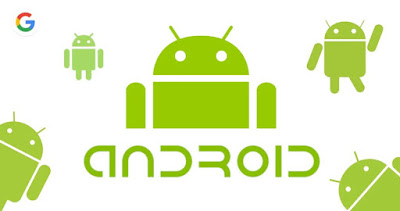Android vs. iOS
Introduction
The battle between Android and iOS has been ongoing for over a decade, with users fiercely loyal to their chosen platform. Each operating system has its own set of strengths and weaknesses, making the Android vs. iOS debate a perennial one. In this article, we will delve into the key differences and advantages of Android compared to iOS, focusing on customization, app ecosystem, and user experience.
1. Customization: The Android Edge
One of the most significant advantages of Android over iOS is its level of customization. Android devices offer a high degree of flexibility, allowing users to personalize their smartphones or tablets to a remarkable extent. Here are a few ways Android takes the lead:
a. Home Screen Customization: Android users can customize their home screens with widgets, app shortcuts, and live wallpapers, giving them the freedom to create a unique look and feel.
b. App Installation: Android users can sideload apps from sources outside the Google Play Store, which can be a double-edged sword in terms of security but offers more flexibility in app choices.
c. Default Apps: Android allows users to set their preferred default apps for various functions, such as web browsing, email, and messaging.
2. App Ecosystem: Diversity vs. Uniformity
When it comes to the app ecosystem, iOS has long been praised for its quality and security. However, Android boasts a different kind of strength: diversity.
a. Google Play Store: Android users have access to the Google Play Store, which offers a vast library of apps, including both free and paid options. The open nature of Android also means a wide range of app categories, catering to various interests and niches.
b. Third-Party App Stores: Besides the official Google Play Store, Android users can explore alternative app stores like Amazon Appstore or Samsung Galaxy Store. This diversity can lead to unique app discoveries.
c. Development Flexibility: Developers often prefer Android for its less restrictive policies, enabling them to experiment and innovate more freely. This can result in a more dynamic app ecosystem.
3. User Experience: iOS Smoothness vs. Android Customizability
User experience is where the Android vs. iOS debate becomes highly subjective. iOS is known for its polished and consistent interface, offering a smooth and straightforward user experience. On the other hand, Android provides more room for customization but might require a steeper learning curve.
a. Consistency: iOS offers a consistent experience across all Apple devices, making it a top choice for those who value uniformity and ease of use.
b. Fragmentation: Android's open ecosystem leads to device fragmentation, with different manufacturers applying their custom skins and software. While this offers diversity, it can sometimes result in inconsistencies in user experience.
c. Updates: iOS devices generally receive timely updates, ensuring users have access to the latest features and security patches. Android updates can be delayed due to manufacturer and carrier involvement, leading to varying update experiences.
Conclusion
In the Android vs. iOS debate, the choice ultimately comes down to individual preferences and priorities. Android excels in customization, diversity, and innovation, while iOS offers a polished, user-friendly experience. Whether you opt for Android or iOS, both platforms have their unique strengths and can provide a satisfying user experience, depending on your needs and preferences. The key is to choose the platform that aligns best with your lifestyle and usage habits.


Comments
Post a Comment